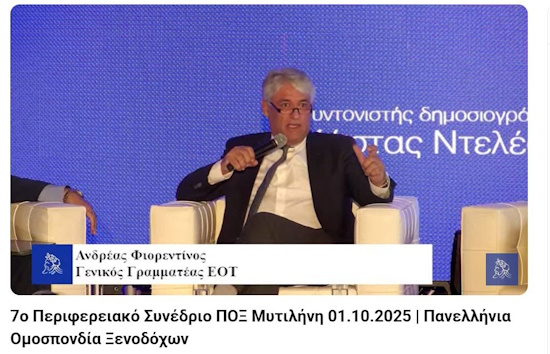Tobacco products: Athens pushes for lower taxation, while the European Commission consider
Source: ProtoThema English
Reactions from Athens and Finance Minister Kyriakos Pierrakakis at recent Eurogroup and Ecofin meetings are leading to milder and more gradual tax hikes on cigarettes over time, putting the brakes on the steep price increases proposed by the European Commission in its draft revision of the Tobacco Taxation Directive — a plan that would have sent the average price of a pack of cigarettes in Greece skyrocketing to €7 or even €28 (!).
Pierrakakis’s stance, along with emerging alliances with southern European countries (notably Italy and Romania), appears to be slowing down the plans of northern nations (led by France and the Netherlands) to impose the highest tobacco taxes in history.
Although differences remain, the final decision at the Council will require a compromise, since unanimity among all member states is needed — and each country retains the right to veto. Given this, even if significant tax increases are eventually approved, a transitional period is expected. This means that the price of a pack in Greece will likely remain below €5 or €6 for quite some time, close to the current average of €4.60.
What the “northern” countries wanted
As To Vima revealed back in July, the Brussels plan for a new “Euro-tax” on tobacco outlined the framework of the directive pushed by the “northern bloc.” According to the document, the Commission proposes the steepest tobacco tax hikes ever: the Excise Duty would more than double — from €90 currently to €215 per 1,000 cigarettes — a 139% increase.
Reports from To Vima also revealed that Brussels was considering redirecting national tobacco excise revenues to the EU budget — something now confirmed by the official TEDOR proposal. Under TEDOR, billions of euros a year would flow into EU coffers instead of national budgets.
Pierrakakis’s alliances
Greece’s opposition was made clear at the first Eurogroup and Ecofin sessions. Minister Kyriakos Pierrakakis warned that sharp tax hikes encourage smuggling, harm competitiveness, and destabilize the market — emphasizing public health as a priority, but advocating a realistic tax scale with longer transition periods. He pointed out that excessive tax increases in countries leading this initiative (like France) have already caused massive losses — France reportedly lost around €1 trillion (!) in tobacco tax revenue due to smuggling in 2024.
It’s no coincidence that nearly a month ago, Pierrakakis met with former Prime Minister Kostas Karamanlis, now president of the Cooperative Union of Greek Tobacco Producers (SEKE), to discuss the issue and potential solutions.
In any case, Pierrakakis’s handling of the matter seems to have at least temporarily frozen the pressure from France, the Netherlands, and the Commission for rapid price hikes — turning a technical negotiation into a political tug-of-war over the pace of increases. By aligning with Italy, Romania, and other southern nations, Greece is helping shape a front in favor of gradual implementation, arguing that sudden unilateral moves would harm exports, investment, and public revenue.
Still, the decision-making process will be long and difficult. Another major sticking point is the TEDOR proposal itself: by making tobacco excise an EU “own resource,” it would transfer a large share of revenues currently collected by member states — about €2.3 billion annually for Greece — directly to the EU budget, potentially dealing a further blow to the country’s public finances.
Ask me anything
Explore related questions
The original article: belongs to ProtoThema English .



